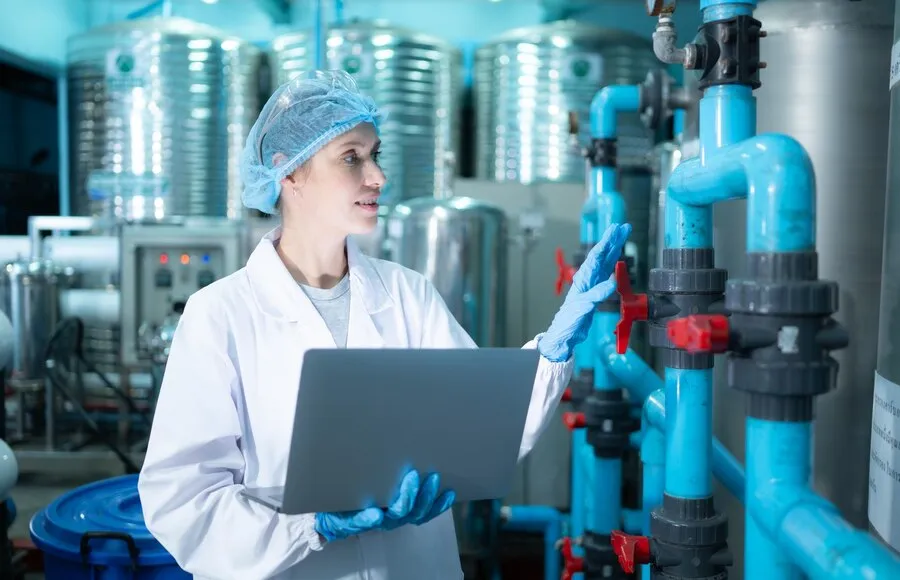Table of Contents
Key Takeaways
- Discover the crucial role of industrial water treatment in ensuring high product quality.
- Learn how efficient water use can drive production efficiency.
- Understand the environmental benefits of effective water treatment methods.
Introduction to Industrial Water Treatment
Industrial water treatment is not merely a support service; it’s a game-changer that significantly influences product quality and production efficiency across many industries. Given that water is an essential yet often overlooked component, paying attention to its treatment becomes crucial. Successful water management ensures that industries can produce goods that meet high-quality standards while optimizing operational workflows. For businesses looking to improve these aspects, turning to providers of industrial water solutions in Maryland can offer advanced treatment systems tailored to meet specific industrial needs.
Industries ranging from textiles to electronics rely heavily on a consistent water supply for various stages of production. Water’s role goes beyond just being a coolant or solvent; impurities, for instance, can lead to surface deposits that affect product quality and equipment performance. Effective water treatment can prevent such issues, reducing downtime and increasing throughput.
The Relationship Between Water Quality and Product Quality
The quality of water used in industrial processes directly impacts the quality of the final product. Water contamination can alter the properties of goods, leading to inconsistencies that can tarnish a brand’s reputation. For instance, unintended minerals or organic matter can cause defects in semiconductor manufacturing or taint food and beverage production. Research published by ScienceDaily highlights how these impurities can be costly, necessitating the reprocessing of products or discarding defective batches entirely. By investing in reliable water treatment systems, industries can uphold quality standards, maintain consumer trust, and reduce production waste.
Enhancements in Production Efficiency
Beyond protecting product quality, effective water management drastically boosts production efficiency. For instance, in industries like pulp and paper, untreated water can cause deposits that lead to frequent maintenance shutdowns and slower production rates. Conversely, industries that employ treated water experience smoother operations with fewer interruptions. Efficient water treatment minimizes equipment wear, reduces the likelihood of clogs, and maintains optimal flow rates. By maintaining these process efficiencies, companies can enhance their production output and profitability, often leading to competitive advantages within their respective markets.
Advanced Water Treatment Technologies
The advancement of water treatment technologies continues to revolutionize industrial practices. Innovations such as membrane filtration, which uses fine barriers to separate impurities, and UV purification, which disinfects water using ultraviolet light, have reshaped how industries approach water quality. According to a report on Tech Xplore, these technologies improve both the efficacy and efficiency of traditional water treatment methods. They offer industries scalable and adaptable solutions that can be customized to specific needs, ensuring compliance with stringent quality standards and reducing operational risks.
Economic Benefits of Industrial Water Treatment
The long-term economic benefits are considerable, while installing comprehensive water treatment systems requires upfront investment. Companies achieve significant cost reductions by minimizing waste and improving water usage efficiency. Clean water diminishes the need for frequent maintenance and repairs, extending equipment lifespan and reducing the likelihood of unexpected breakdowns. Additionally, effective water treatment ensures compliance with environmental regulations, mitigating the risk of fines and enhancing corporate sustainability. These factors collectively bolster the bottom line and offer measurable returns on investment.
Also Read: The Ultimate Guide to Sump Pump Replacement: Everything You Need to Know
Environmental Advantages
Effective water treatment practices significantly contribute to reducing industries’ environmental footprint. Companies can recycle and reuse water by approaching water treatment with sustainability, dramatically decreasing freshwater consumption. This aligns with global environmental objectives and protects vital water sources from overuse. Sustainable water practices reduce pollution levels in discharged effluents, contributing to healthier ecosystems and biodiversity. Water treatment is essential in advancing industrial sustainability and meeting international environmental commitments.
Challenges and Solutions in Industrial Water Treatment
Despite the advantages, implementing water treatment solutions presents challenges such as scaling, substantial initial costs, and system maintenance. However, companies can overcome these hurdles through prudent planning and state-of-the-art technologies. Automating routine maintenance, conducting regular inspections, and investing in staff training help ensure systems operate efficiently and effectively. Leveraging cutting-edge technologies means industries can more readily adapt to emerging challenges, ensuring the long-term success of water treatment initiatives.
Final Thoughts: The Future of Water Treatment in Industry
Industrial water treatment is not just necessary; it’s a strategic advantage crucial for enhancing product quality, optimizing efficiency, and achieving environmental sustainability. As industries grow more conscious of resource management, the role of water treatment is expected to become even more prominent. The future holds innovations that promise greater integration, cost-effectiveness, and efficiency in water treatment processes. By staying ahead of these trends, industries can remain competitive while contributing positively to their environmental and economic landscapes.






